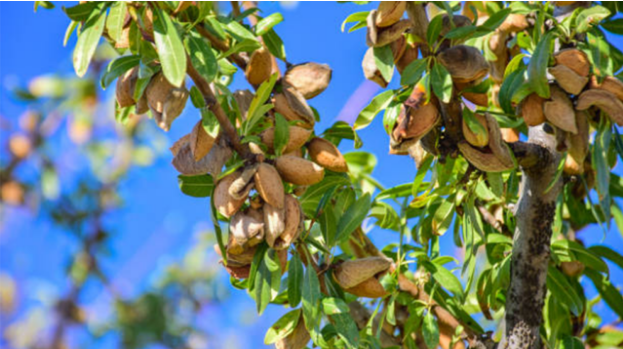Your cart is currently empty!
Nutritional Benefits of Dried Figs
Dried figs are a wonderful addition to any well-balanced diet. In moderation, they provide a wide variety of nutrients that our body needs to feel and function at its’ best. Dried figs contain vitamins A, C, K, and B, magnesium, zinc, copper, and more. All of which prevent and ease symptoms associated with several different health issues.
Kinds of Figs
All figs were historically called an Anjeer. Though there are hundreds of different types of figs, there are six kinds of fresh and dried figs that we commonly see and eat today. The easiest ones to find for sale are Black Mission, Calimyrna, and Kadota figs.

Dried Figs and Digestion
Looking to boost your fiber intake and promote healthy bowel habits with a sweet and satisfying snack? Look no further than dried figs. They are considered mild in flavor, versatile, and low in fat. A half-cup of dried figs contains 7.5 grams of fiber, which is almost 30% of your recommended daily intake.
A study was done that examined 40 people who suffered from constipation. When the participants consumed 10.6 ounces of fig paste per day over 16 weeks, bowel habits improved. The paste helped improve stool consistency, speed up movement, and relieve stomach pain and discomfort. Always keep in mind that too much of a good thing is possible, so overdoing your dried fig intake can cause the opposite digestive problem. Even in Ancient Mesopotamia, figs were a prized food for it’s clear benefits.
Heart Disease and Blood Pressure
Triglycerides are a major cause of heart issues. Dried Figs can actually reduce triglyceride levels, making them perfect for prevention and control. The potassium we find from dried figs is where we see the benefits of regulating blood pressure. Our modern world has massive amounts of sodium in processed foods, potassium can thankfully be used to counteract that oversupply.

Blood Sugar Levels and Diabetes
Dried figs, similar to many fruits, are high in sugar. It doesn’t sound ideal for those suffering from diabetes. However, moderation is key. Fruits both dried and fresh, have so many health benefits and are recommended for any diet. As we’ve mentioned above, dried figs specifically are loaded with fiber and this supports healthy insulin function.
Calcium
Surprisingly, you will not find a better source of calcium in plants than in figs. It’s possible to get a daily dose of calcium from foods other than dairy. Figs provide more calcium than any other dried fruit. Because of this, figs can help fight off well-known calcium-related diseases like Osteoporosis. But beyond that, calcium also plays a part in mental and dental health, energy levels and the list goes on.
Antioxidants
According to a study performed in 2005, figs are superior to other fruits in their amount and quality of antioxidants. Nutrition experts recommend adding figs to a healthy and balanced diet to reduce the amount of free radical damage in the body. This damage often being linked to the development of Cancer.

Dried Figs and Beauty Benefits
The nutritional benefits of dried figs also contribute to our appearance. All those vitamins and minerals can boost skin circulation, giving skin a healthy “glow.” The versatile and delicious fruit is also fabulous for hair. Many shampoo companies add fig extract to their products, and one study found that ingesting figs can actually prevent hair loss.
Getting the Nutritional Benefits of Dried Figs
Incorporating dried figs into your diet is extremely easy to do. For breakfast, add them to cereal or oatmeal alongside some high-protein nuts. Midday, they make the perfect addition to salads needing a sweet kick. You can even add them to many delicious baked goods.
No matter how you choose to enjoy them, find a way that not only tastes great to you but also complements your specific dietary needs.







